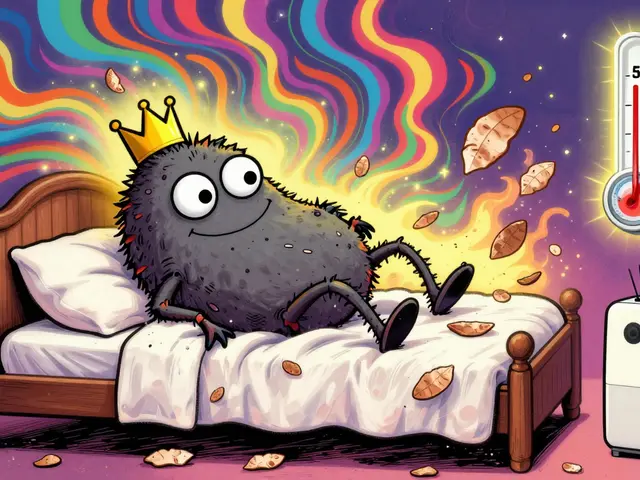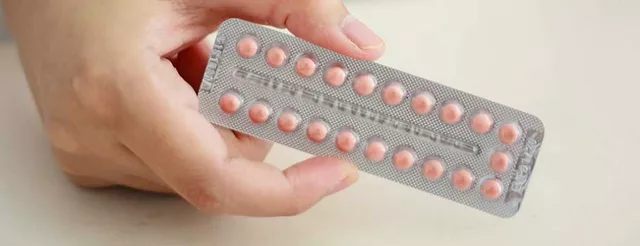Understanding Clomiphene: A Brief Overview
Before diving into the science behind Clomiphene, let me first provide a brief overview of this medication. Clomiphene is a drug commonly prescribed to help women who are struggling with infertility. It is an oral medication that is typically administered in the early stages of a woman's menstrual cycle. Clomiphene is known to be effective in stimulating ovulation, which is crucial for conception. In this article, we will explore the science behind Clomiphene and how it works in the body. So, let's begin our journey to understand this fascinating drug.
The Chemistry of Clomiphene: A Closer Look at the Compound
Clomiphene is a synthetic compound that closely resembles the structure of a naturally occurring hormone called estrogen. It is classified as a selective estrogen receptor modulator (SERM), which means that it can either activate or inhibit the estrogen receptors in the body, depending on the specific tissue it is interacting with. This unique property of Clomiphene is what makes it effective in treating infertility. In the next section, we will discuss how Clomiphene interacts with the body's hormonal system to stimulate ovulation.
Clomiphene and the Hypothalamic-Pituitary-Ovarian Axis
The hypothalamic-pituitary-ovarian (HPO) axis is a complex hormonal system responsible for regulating a woman's menstrual cycle and fertility. It involves the interaction of various hormones, including gonadotropin-releasing hormone (GnRH), follicle-stimulating hormone (FSH), and luteinizing hormone (LH). Clomiphene works by targeting the HPO axis and altering the hormonal balance to stimulate ovulation. Let's see how it achieves this.
Blocking Estrogen Receptors: Clomiphene's Primary Mechanism of Action
As mentioned earlier, Clomiphene is a SERM, which means it can either activate or inhibit estrogen receptors in the body. In the case of infertility treatment, Clomiphene acts as an estrogen antagonist, blocking the receptors in the hypothalamus and pituitary gland. This blockage prevents the body from detecting the presence of estrogen, leading to an increase in the production of GnRH by the hypothalamus.
The increased production of GnRH, in turn, stimulates the pituitary gland to release higher amounts of FSH and LH. These hormones are crucial for the growth and maturation of ovarian follicles, which contain the eggs. The surge in FSH and LH levels eventually leads to the release of a mature egg from the ovary, a process known as ovulation.
Clomiphene's Impact on Follicular Development and Ovulation
Clomiphene's ability to stimulate the release of FSH and LH has a direct impact on the development of ovarian follicles. Under normal circumstances, a woman's body produces a single mature follicle each month, which then releases an egg during ovulation. However, in women with infertility issues, the natural process of follicular development and ovulation may be disrupted.
By increasing FSH and LH levels, Clomiphene promotes the growth and maturation of multiple follicles, increasing the chances of successful ovulation and conception. It is important to note that while Clomiphene can effectively stimulate ovulation, it does not guarantee pregnancy, as various other factors can also influence a woman's fertility.
Monitoring Clomiphene Treatment: Ensuring Safety and Efficacy
While Clomiphene is considered a safe and effective treatment for infertility, it is essential to monitor its effects on the body closely. This is because the stimulation of multiple follicles can sometimes lead to a condition called ovarian hyperstimulation syndrome (OHSS), which can cause severe pain, bloating, and other complications.
To ensure the safety and efficacy of Clomiphene treatment, doctors often perform regular ultrasounds and blood tests to monitor the growth and development of ovarian follicles. This allows them to adjust the dosage of the medication and ensure that the patient is responding well to the treatment without experiencing any adverse effects.
The Success Rates and Limitations of Clomiphene Treatment
Clomiphene has been proven to be successful in stimulating ovulation in up to 80% of women who take the medication. However, the overall pregnancy rate for women undergoing Clomiphene treatment is estimated to be around 30-40%. This discrepancy between ovulation and pregnancy rates highlights the fact that while Clomiphene can effectively address ovulatory issues, it may not be sufficient to overcome other factors that contribute to infertility.
It is important for women undergoing Clomiphene treatment to be aware of its limitations and to discuss other potential treatment options with their healthcare provider if they do not achieve pregnancy within a reasonable timeframe.
Conclusion: The Science Behind Clomiphene and Its Role in Infertility Treatment
In conclusion, Clomiphene is a fascinating drug that harnesses the power of selective estrogen receptor modulation to stimulate ovulation and improve fertility in women. By blocking estrogen receptors in the hypothalamus and pituitary gland, Clomiphene promotes the release of FSH and LH, which are crucial for the growth, maturation, and release of eggs from the ovaries.
While it is not a guaranteed solution for all infertility issues, Clomiphene has been proven to be an effective and safe treatment option for many women. Its unique mechanism of action and impact on the hormonal system make it an essential tool in the arsenal of infertility treatments, helping countless women achieve their dream of becoming mothers.






May 22, 2023 AT 02:28
Shana Labed
OMG this is SUCH a game-changer for so many of us! I was on Clomiphene for 3 cycles and finally got pregnant on the third try-like, I cried in the pharmacy parking lot. The science behind it is wild, but honestly? I just wanted a baby and this thing worked. SERMs are basically magic potions disguised as pills. 🙌
May 22, 2023 AT 14:19
California Daughter
Wait… so… you’re saying… that… blocking estrogen… causes… the body to… overcompensate… by… making… more… FSH… and… LH…?!!?… That’s… not… how… biology… works… right?… I… mean… it’s… like… screaming… into… a… void… and… expecting… a… concert…
May 23, 2023 AT 21:26
Vishwajeet Gade
USA think they invented fertility science? We in India have been using ashwagandha and turmeric for 5000 years. Clomiphene? Just modern placebo with side effects. Also, why not try yoga? 🙏
May 23, 2023 AT 23:29
Casey Crowell
This is so cool 😍 I love how the body’s feedback loops are like a thermostat-block the signal, it cranks up the heat! It’s literally biology playing a game of ‘hotter or colder.’ And the fact that it’s selective? That’s like giving your hormones a GPS instead of a sledgehammer. Love this stuff.
May 25, 2023 AT 08:56
Shanna Talley
For anyone reading this and feeling overwhelmed-your body is not broken. You’re just navigating a system that wasn’t designed for modern life. Clomiphene isn’t a fix, it’s a bridge. And you’re already doing the hard part by seeking answers. Keep going. You’re not alone.
May 25, 2023 AT 13:06
Emily Duke
Ugh. Another one of these ‘miracle drug’ posts. I know 3 women who got OHSS and one of them had to be hospitalized. And guess what? None of them got pregnant. So yeah, 80% ovulation rate? Cool. 30% pregnancy? That’s a 2/3 failure rate. Why are we celebrating this?
May 26, 2023 AT 15:22
Stacey Whitaker
Just sat here sipping chai, reading this, and thought-huh. So it’s like your body thinks it’s in famine mode? Block estrogen, think ‘oh no babies!’ and go full ovulation mode? Wild. Feels like the body’s got a really dramatic personality.
May 26, 2023 AT 19:44
Kayleigh Walton
If you’re considering Clomiphene, please, please, please work with a fertility specialist. Monitoring is not optional. I had a friend who skipped ultrasounds and ended up with a twin pregnancy and a 3-week hospital stay. This isn’t a DIY thing. Your health matters more than your timeline.
May 27, 2023 AT 17:05
Stephen Tolero
Is the half-life of clomiphene metabolites relevant to its duration of action in the HPO axis? Could extended exposure lead to receptor desensitization?
May 29, 2023 AT 04:35
Brooklyn Andrews
My sister took this and got pregnant on the first try. Also got a headache that lasted 3 weeks. But hey-baby in arms, headache in the rearview. Worth it.
May 30, 2023 AT 05:31
Joanne Haselden
As someone who’s counseled dozens of patients on this, the emotional toll is just as real as the physiological one. The pill schedule, the basal temps, the ovulation sticks-it’s exhausting. Clomiphene isn’t just chemistry. It’s a ritual. And rituals take courage.
May 30, 2023 AT 12:26
Vatsal Nathwani
Clomiphene is expensive. Why not just eat more eggs? Also, why do Americans always need pills for everything?
June 1, 2023 AT 09:10
Saloni Khobragade
How can you trust a drug that changes your mood? I read it causes depression and I think its evil. God gave us bodies for a reason. Stop messing with nature.
June 2, 2023 AT 21:49
Sean Nhung
So if it blocks estrogen… does that mean you feel like you’re in menopause for a few days? 😅 I’d be so cranky. Also, anyone else get weird dreams on this stuff? I dreamed I was a dolphin.
June 4, 2023 AT 06:20
kat pur
I’m so glad someone explained this clearly. I’ve been reading so much conflicting info. This made sense. Thank you.
June 6, 2023 AT 03:09
Vivek Mishra
Clomiphene is just a hack. Real fertility is about lifestyle. Sleep. Stress. Gut health. Not pills.
June 7, 2023 AT 00:14
Shana Labed
@3517 I tried all the ‘lifestyle hacks’-yoga, keto, acupuncture, moon cycle syncing. Nothing worked. Clomiphene did. Not everything’s about ‘natural’ when your body’s not cooperating. This isn’t a wellness trend-it’s medicine.